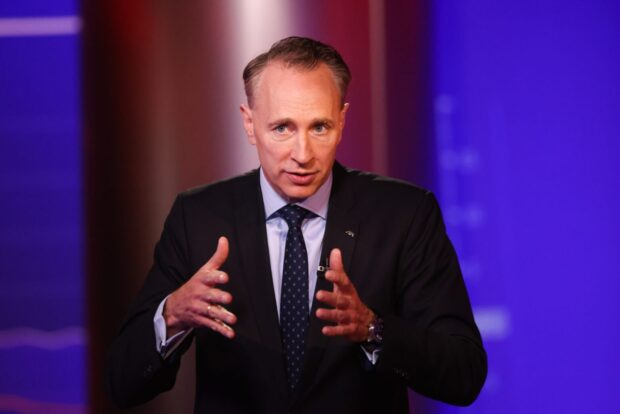Governments are ill-prepared for the hazards brought on by artificial intelligence and development should be paused, according to a new survey of risk specialists by insurance company AXA SA.
Only 7 percent of almost 3,500 risk experts from 50 countries said that public authorities are ready to deal with AI, according to AXA’s 10th annual Future Risks Report released Monday. The private sector didn’t fare much better, with just 16 percent of the experts saying corporations are prepared.
While AI came in fourth overall among the emerging risks facing the world, it inspired the least confidence among respondents about preparedness, AXA said in a summary. The potential for an existential threat to humankind was the main worry. Almost two-thirds of the experts and 70 percent of the general population said the world needs to take a break from research into AI and other disruptive technologies, with Asia and the U.S. most strongly favoring a pause.
Artificial intelligence can provide lots of benefits of society, “but obviously we need to have very clear rules that these benefits are not being abused,” Thomas Buberl, chief executive officer of Paris-based AXA, said during an interview while visiting the campus of Massachusetts Institute of Technology in Boston.
Overall, the experts viewed climate change as the single most important emerging risk for the third year in a row, followed by cybersecurity and geopolitical instability.
President Joe Biden released a lengthy executive order on Monday that sets new standards on security and privacy protections for AI. Developers such as Microsoft Corp. and Alphabet Inc. will be directed to put powerful AI models through safety tests and submit results to the government before their public release. Biden’s directive precedes a trip by Vice President Kamala Harris to a UK-hosted AI-risk summit.
Buberl supports a more global framework on AI, suggesting that efforts to deal with climate change could be a template for governing artificial intelligence.
“AI opens a new chapter for our societies” when you look at the upsides, he said. “The public debate started this time very much around all of the downsides without ever talking about the upsides, and I think getting this balance right going forward seems to be very important.”
Buberl struck an optimistic tone on efforts to combat climate change, saying he expects to see some progress at COP28, the UN Climate Change Summit that begins Nov. 30 in Dubai. He worries a deterioration in economic conditions is making things harder, particularly given the rise in interest rates that has boosted financing costs for climate projects.
“The price, on the other hand, needs to change in order to make these forms of energy more interesting to investors again,” he said.
The AXA report repeatedly highlighted the interconnected nature of these global risks, which is at odds with the fading appetite for globalization that powered the world economy for the past five decades.
“Over the last few months and years, it has become much more difficult for governments to really align,” he said. “When you look at who today is still very global and is also in touch with each other, it’s the companies,” he said. “Companies, and in particular also insurance companies, will need to play a larger role.”
Photograph: Thomas Buberl, chief executive officer of AXA SA, during a Bloomberg Television interview in London, UK, on Aug. 3, 2023. Photo credit: Hollie Adams/Bloomberg





















 Is Risk the Main Ingredient in Ultra-Processed Food?
Is Risk the Main Ingredient in Ultra-Processed Food?  Why Claims AI Build vs. Buy Decisions So Often Miss the Mark
Why Claims AI Build vs. Buy Decisions So Often Miss the Mark  Reinsurance Program Could Wipe Out Need for Calif. FAIR Plan: Legal Exec
Reinsurance Program Could Wipe Out Need for Calif. FAIR Plan: Legal Exec  State Farm Mutual to Pay $5B Dividend to Auto Insurance Customers
State Farm Mutual to Pay $5B Dividend to Auto Insurance Customers 